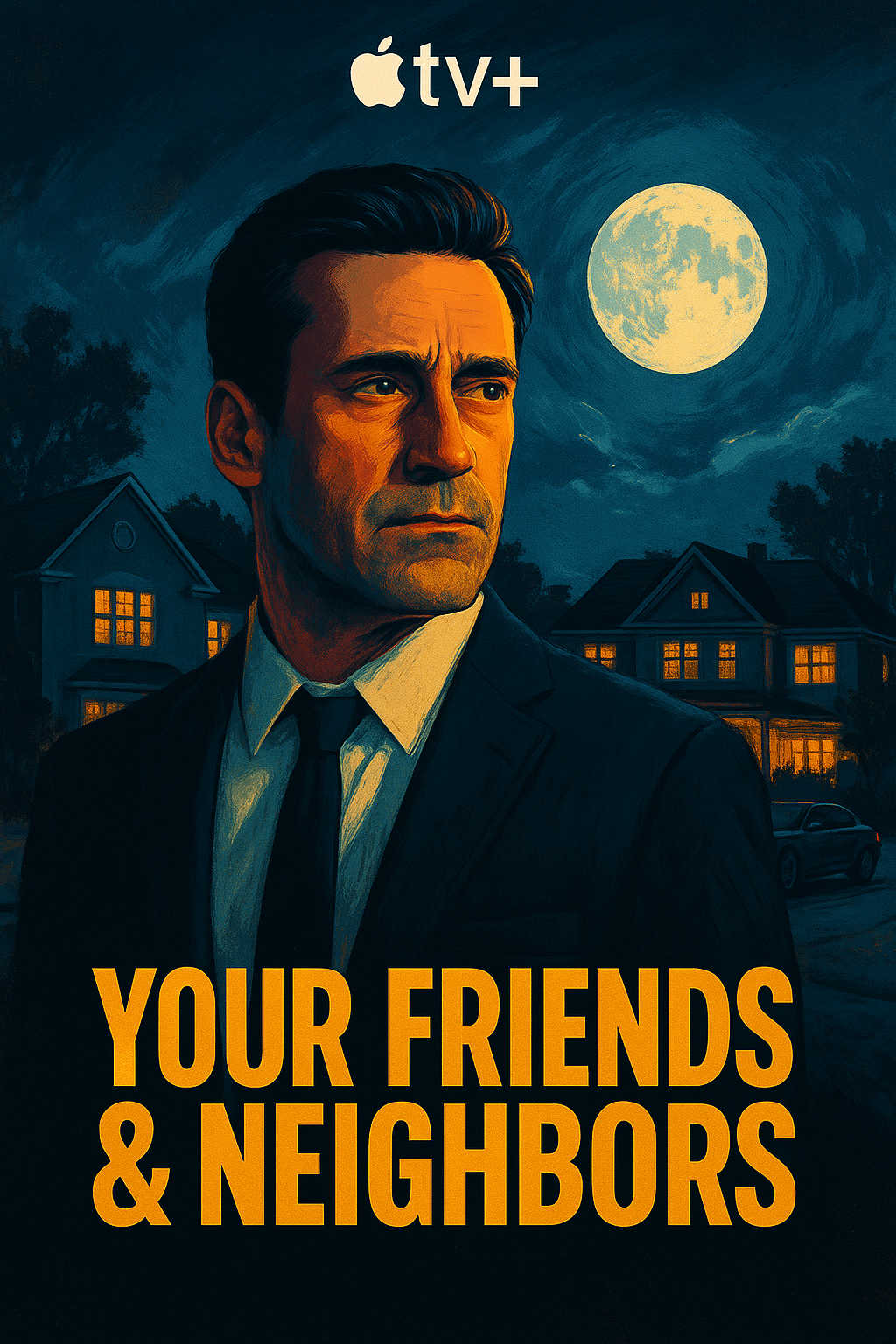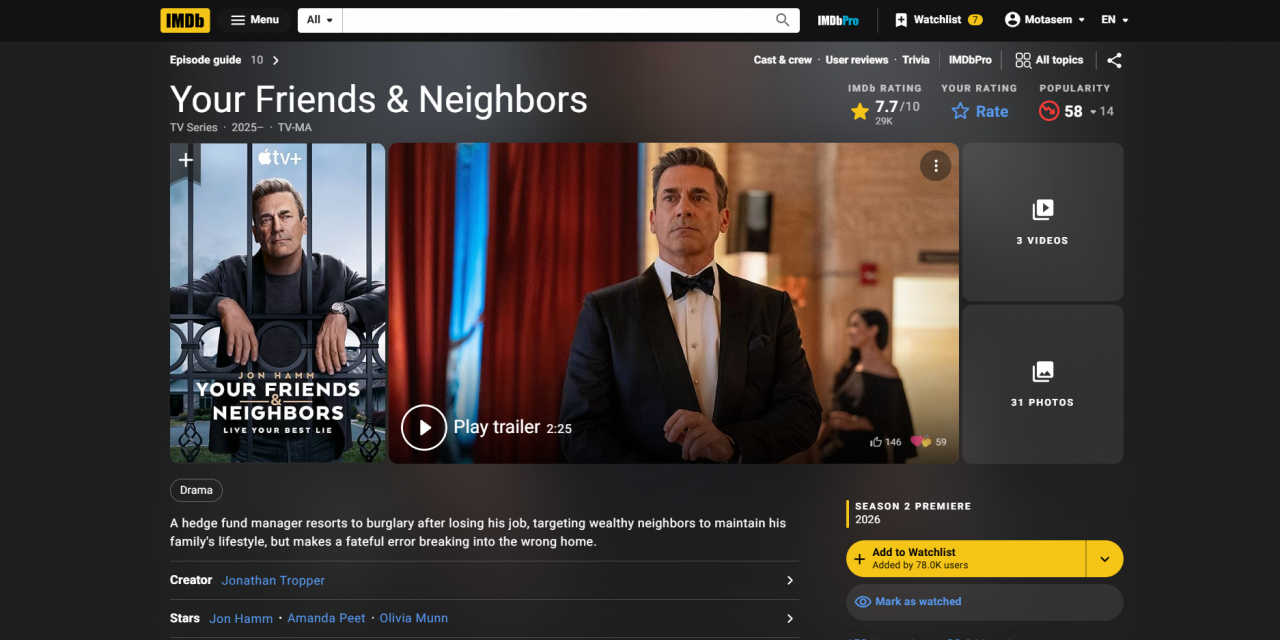A Detailed Recap, Analysis, and Review
Disgraced hedge-fund manager Andrew “Coop” Cooper (Jon Hamm) loses his job, marriage, and identity. Under financial strain and isolation, he begins burgling wealthy neighbors, stealing luxury goods, to maintain appearances. The tension crescendos when he’s implicated in the murder of Paul Levitt

Initially framed by incriminating evidence (gun in his car, false clues), Coop, with housekeeper-turned-partner Elena (Aimee Carrero), uncovers that Paul’s wife Sam (Olivia Munn) staged the murder to secure insurance money. She narrates her backstory in a pivotal perspective switch, revealing existential loneliness behind her actions.
Cleared of charges, Coop is courted back by his former firm, leveraging his new assertiveness, born of criminal life, to negotiate a high-stakes deal. He attends a gala, dances with his ex Mel (Amanda Peet), but ultimately chooses revenge: skipping the corporate plane trip and stealing a painting from his ex‑boss’s house . The season closes with Coop figuratively and literally driving away from a conventional life, embracing his darker evolution.
Character Arcs & Analyses
Coop (Jon Hamm):
- Starts as a high-flying finance guy, becomes a desperate, self-aware burglar, and ends as something new: a cunning antihero. Critics note this blend of charisma and moral ambiguity.
Mel (Amanda Peet):
- Coop’s ex, emotionally tethered to him despite divorce. Her scene urging him to fight is a catalyst for Coop’s resurgence. Their bond morphs into something aspirational, divorced, yet deeply connected .
Sam (Olivia Munn):
- The mysterious lover, initially a pawn, then revealed as the orchestrator of murder. Her monologue adds a layer on societal facades and desperation.
Elena (Aimee Carrero):
- Coop’s housekeeper-cum-partner in crime. Represents socioeconomic contrasts, her shift into burglary deepens the class critique.
Themes and Real-Life Connections
What really struck me about the show was how it peeled back the glossy surface of suburban life. On the outside, this Westchester-style neighborhood looks picture-perfect, big houses, luxury cars, well-manicured lawns. But beneath all that? There’s loneliness, pressure, and a quiet kind of misery. It’s a reminder that money can hide a lot of pain.
Then there’s Coop’s journey. He had everything we’re told will make us happy, degrees, a big job, a nice family. But watching his life unravel shows how fragile that whole idea is. Just because you check all the boxes doesn’t mean you’re safe or fulfilled.
There’s this recurring theme in the show about capitalism and identity. Coop often reflects on how entire industries are built on people’s quiet desperation, and it hits hard. It makes you think about how much of our self-worth is tied to what we own or what we do for a living.
The class divide is another powerful layer. Coop and Elena start from totally different places in society, but they end up breaking the law together. It blurs the lines between right and wrong, showing how desperation, and maybe a bit of thrill, can bring people together across economic lines.
And finally, Coop’s evolution is something else. By the end, he’s not trying to go back to who he was. He’s become someone new, someone who sees through the system and refuses to play by its rules anymore. It’s like he’s unplugged from the Matrix and decided to rewrite his own script.
Review
Over on IMDb, viewers seemed to really enjoy the show, one comment summed it up as “a great, smooth, and funny Jon Hamm performance,” which pretty much captures the vibe.

Rotten Tomatoes’ audience score landed around 3.5 out of 5. People appreciated the sharp satire and gorgeous visuals, but not everyone was sold on the pacing. Some felt parts of the story dragged or veered into overly dramatic, soap-opera territory.

In general, fans liked the concept and definitely loved Hamm in the lead role. But the finale sparked some debate, especially about whether Coop’s choices undercut the moral thread the season had been building all along.




